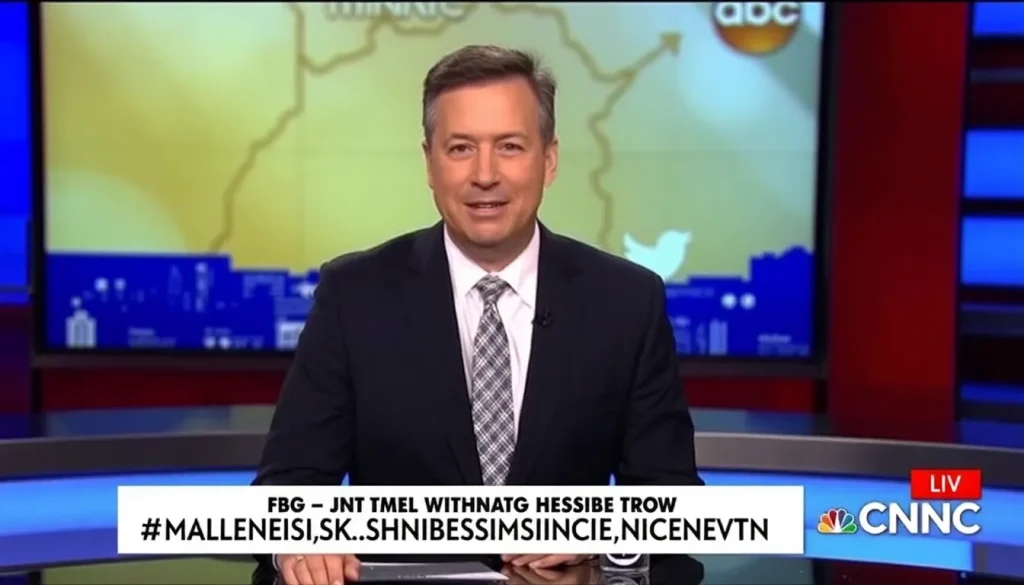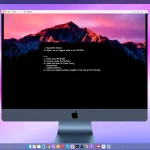FCC criticized as Federal Censorship Commission after Kimmel's exit from ABC

In a significant move that has drawn widespread criticism, ABC abruptly suspended the airing of Jimmy Kimmel's show, "Jimmy Kimmel Live!", following pressure from Federal Communications Commission (FCC) Chairman Brendan Carr. This decision has sparked heated debates about censorship and the role of government in regulating media content, raising questions about the future of free speech in America.
As discussions unfold around this situation, it's crucial to understand the broader implications of Carr's recommendations and the political climate that surrounds them. The intersection of media, politics, and regulation is becoming increasingly contentious, making it essential for audiences to stay informed.
The role of the FCC in media regulation
The FCC is an independent agency of the U.S. federal government, responsible for regulating communications by radio, television, wire, satellite, and cable. Its mission includes ensuring that the public interest is served through the broadcasting system. However, recent actions taken by Carr have led some to question whether the agency is overstepping its authority.
Historically, the FCC has avoided delving into the content of news broadcasts, allowing networks to operate with a degree of editorial freedom. Nevertheless, Carr's recent threats against ABC have raised alarms. He insinuated that failure to act against Kimmel could lead to further scrutiny and consequences for the network, effectively implying that the government could impose sanctions based on content decisions.
- The FCC licenses broadcast stations, which gives it a degree of power over what these stations can air.
- Previous FCC chairs, regardless of their political affiliations, generally refrained from regulating the content of television news, focusing instead on technical compliance and market competition.
- Carr's approach represents a shift toward a more interventionist stance, particularly regarding voices that he perceives as politically biased against Republican viewpoints.
Reactions to Kimmel's suspension
Following the FCC's intervention, ABC confirmed that Kimmel's show would be "preempted indefinitely." This swift action was taken by the network's CEO, Robert Iger, and head of TV division, Dana Walden, amid concerns over Kimmel's commentary on the tragic murder of conservative activist Charlie Kirk. In his monologue, Kimmel had criticized the attempts to distance the political right from the shooter, prompting Carr's public outcry.
In response to the suspension, various political figures and media organizations have voiced their outrage. Several House Democratic leaders accused Carr of abusing his power, claiming he pressured ABC to align with the Trump administration's agenda. They have called for his resignation, arguing that such actions undermine the integrity of the FCC and threaten press freedoms.
- Democratic leaders have described Carr's actions as a "corrupt abuse of power."
- Free speech advocates argue that the FCC's involvement in content regulation poses a serious threat to the First Amendment.
- Critics have highlighted the potential precedent that could be set if the government is allowed to dictate media content based on political perspectives.
The implications of censorship
The term "Federal Censorship Commission," as coined by media advocacy group Free Press, underscores the growing perception that the FCC is acting as a gatekeeper for political narratives. This characterization reflects broader concerns about the chilling effects of government intervention on free speech.
Craig Aaron, co-CEO of Free Press, stated, “They’re abusing their power to shake down media companies with their dangerous demands for dishonest coverage and Orwellian compliance with the administration's political agenda.” Such statements reveal the fear that government entities could exert undue influence over media narratives, potentially leading to self-censorship among broadcasters.
- The concept of censorship is not limited to overt actions; it can also manifest as an atmosphere of fear among journalists and content creators.
- Self-censorship can occur when media outlets preemptively alter or avoid content that may trigger government scrutiny.
- The erosion of trust in media could lead to a disengaged public, as audiences become wary of biased reporting or manipulation of the news.
The legal landscape surrounding FCC actions
While the FCC holds considerable influence, the legal landscape surrounding its attempts to revoke licenses or impose penalties for content decisions is complex. Historically, revocations have proven to be legally challenging, often described as "effectively impossible" during an active licensing period. This raises questions about the legitimacy of Carr's threats against ABC.
Legal experts argue that any attempt to revoke a broadcasting license due to perceived news distortion could face substantial legal challenges, particularly regarding the First Amendment protections offered to media entities. The FCC has not successfully enforced its news distortion policy since 1993, indicating a significant gap between policy and practice.
Despite these legal hurdles, Carr's rhetoric has already impacted decision-making within major media companies. As he stated on a recent podcast, “They have a license granted by us at the FCC, and that comes with an obligation to operate in the public interest.” This statement reveals an expectation that broadcasters adhere to a standard that aligns with government interests, creating a precarious situation for media independence.
Political responses and societal implications
The political ramifications of Kimmel's suspension extend beyond the immediate issue of censorship. Former President Barack Obama criticized Carr's actions, highlighting the troubling trend of government overreach into media affairs. He stated, “After years of complaining about cancel culture, the current administration has taken it to a new and dangerous level.”
Trump himself expressed approval of Kimmel's suspension, viewing it as a victory for his political agenda. He called for further action against other late-night hosts, indicating a desire to reshape the media landscape according to his preferences. This call for censorship has resonated with some conservative factions, further polarizing the public discourse around media freedom and accountability.
- Trump's comments have been perceived as an endorsement of punitive measures against media personalities who challenge his views.
- The ongoing debate reflects a broader societal struggle between differing political ideologies and the role of media in shaping public perception.
- Advocates for free speech emphasize the need for diverse viewpoints to be represented in media to foster a healthy democratic environment.
The call for unity and respectful dialogue
In light of the controversy, Kimmel himself urged the public to move away from "angry finger-pointing" and to focus on the underlying issues of gun violence and political divisiveness. This appeal for constructive dialogue highlights the importance of empathy and understanding in addressing societal challenges.
While the suspension of "Jimmy Kimmel Live!" may have been a tactical response to political pressures, the broader implications of this decision will likely reverberate through the media landscape. As audiences and media professionals grapple with the balance between free speech and accountability, the ongoing discourse around censorship will be crucial for the future of journalism in America.
For further insights into the situation, you can watch this relevant discussion:
As this story unfolds, it is vital for citizens to engage with the complexities of media regulation, political influence, and the fundamental rights that underpin democratic society. The Kimmel saga serves as a reminder of the fragility of free speech and the ongoing necessity to defend it against encroachments from any quarter, be it government or corporate interests.




Leave a Reply